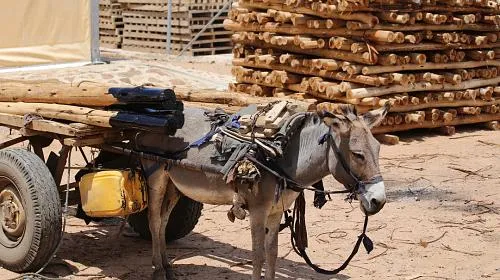Women and girls face greatest risks / Additional funding needed to meet refugees’ needs in Dadaab
NAIROBI (November 17, 2016) – To mark this year’s World Toilet Day CARE is calling for increased global funding to ensure access to clean and safe water and sanitation facilities for over 275,000 people in Dadaab, Kenya. Since the announcement of the closure of the world’s largest refugee camp and furthermore massive funding short-cuts, water and sanitation might fall critically short in upcoming months, especially affecting women and girls.
Toilets play a crucial role in improving health and protecting safety and dignity. With over 2.4 billion people worldwide lacking access to a safe and clean toilets, sanitation is a global development priority aiming to ensure access to safe toilets for everyone by 2030. “Clean and safe toilets save lives. People get sick because of defecation in the open, flooded latrines and untreated wastewater,” says Rod Volway, Director of Refugee Operations at CARE Kenya. “Worldwide over 315,000 children per year lose their lives due to diarrhea caused by poor sanitation and dirty water. Whenever children have no clean water, they can contract diarrheal diseases, suffering impaired physical and cognitive growth, if not death.”
In Dadaab, CARE has been working on improving water and sanitation facilities for many years. But as Dadaab turned into a long-term emergency and funding began to run short, aid agencies are dealing with massive logistical issues meeting the needs of the refugees. “Most of the people are living in Dadaab for over 25 years. They face significant hardships every day; surviving with only very limited amounts of water and a lack of access to clean and safe sanitation facilities,” adds Volway. “We urgently need additional funding to ensure that we can still meet refugees’ needs as long as the camp exists.”
Today, one in ten people globally have no other choice than to defecate in the open and as often it is particularly girls who are most at risk. “Women are in danger of being sexually assaulted, and more girls will stop going to school all together when they begin to menstruate, if they lack a private place to clean themselves,” mentions Volway. “No access to clean and safe sanitation will continue and worsen the vicious cycle of poverty and poor education.”
In Dadaab, where mostly Somalis found refuge because of conflict or drought, CARE and ECHO are working together with more than 1,600 refugee volunteers to improve water, sanitation and hygiene promotion. With a focus on empowering the refugee community to take the lead in the delivery of water and sanitation services, CARE and ECHO have been rehabilitating and building more than 1,600 latrines. In 2016, over 420 water tabs and seven boreholes have been kept up by refugees themselves to ensure clean and safe access to water and sanitation for over 140,000 members of their community.
Media Contact: Holly Frew hfrew@care.org +1.404.979.9389

